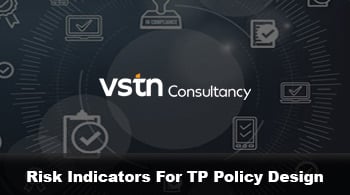Time for Transfer Pricing Compliances
TP compliance deadline of October 31 is fast approaching & companies to be ready for filing Form 3CEB, Maintaining TP documentation, filing CbC notification (if parent entity follows calendar year), and submitting Masterfile notification. Masterfile filing & safe harbour form is due by the end of November 2024
- Form 3CEB – Critical pointers
Form 3CEB requires precise disclosure of international transaction &SDT between AEs. Simply relying on AS18 for RPT disclosures is insufficient, as both conditions under sections 92A(1) & 92A(2) must be satisfied. Deemed AEs & Deemed transactions are often overlooked & hence identification is the key.Evaluate hidden transactions – e.g free-of-cost assets from the AE require evaluation for disclosure, considering their implications as notional costs and GST treatment. The issue of shares, while not classified as an international transaction by the Supreme Court, still demands careful disclosure due to the form’s lack of updates. Additionally, interest-free loans/ corporate guarantees from Indian HQ to AEs to be assessed if they are quasi equity/shareholder activities and hence there was no compensation. Changes in FAR profile & characterization of the assessee to be evaluated under Business restructuring. Overall, these transactions require thorough evaluation & disclosure to ensure compliance with ALP standards.Distinction between services & reimbursements is critical. Understanding nature of transaction is vital. For instance, when an AE reimburses the salary costs of Indian employees, it may indicate that these employees are providing services such as sourcing or marketing for the AE, rather than simply being in nature of reimbursement. As a result, pricing for these transactions should be reevaluated, focusing on the transaction’s nature instead of solely relying on the pricing policy.Lastly, companies with Service charges, royalty payments, & management fees to prove need benefit test and maintain cost allocations, and pricing justification.
- Time for action
Crucial time for companies to evaluate the need if any for a suo moto adjustment if an international transaction is not at arm’s length post book closure. Companies can voluntarily adjust their transfer price to comply with the arm’s length principle in the IT return, which may increase their income or reduce losses.For those opting for safe harbour, if their margins fall short of the targeted margins, then decision for suo moto adjustment to meet the safe harbour margins needs to be made before filing the 3CEB. - Foreign entities Compliances
A foreign entity with income accruing or arising in India and a registered PAN in India is required to file Form 3CEB. Foreign entities must maintain their own transfer pricing documentation and cannot depend on those prepared by their Indian subsidiaries.
As businesses expand across borders, navigating complex transfer pricing regulations becomes critical. At VSTN Consultancy, a global transfer pricing firm, we specialize in helping companies stay compliant and competitive across key markets including:
India | UAE | Singapore | USA | KSA | Dubai | Asia Pacific | Europe | Africa | North America
Whether you’re preparing for benchmarking intercompany transactions, or developing robust TP documentation, our team is here to support your international strategy and Compliance.
Contact us today to explore how we can partner with you to optimize your global transfer pricing approach.
#TransferPricing #TransferPricingFirm#VSTNConsultancy #TaxCompliance #IndiaUAEUSA
#TPExperts#TransferPricingExperts#GlobalTransferPricingFirm






